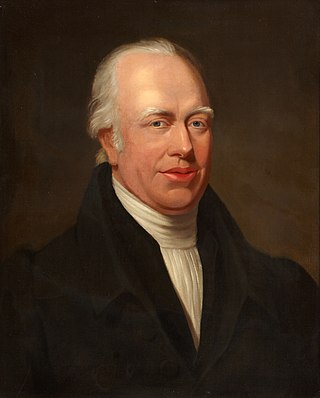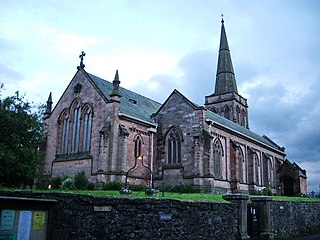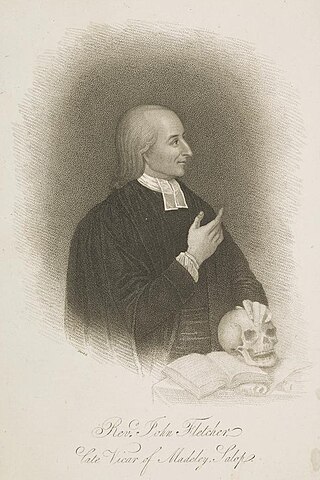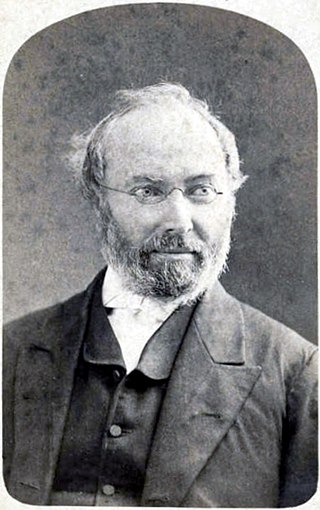
Arminianism is a movement of Protestantism initiated in the early 17th century, based on the theological ideas of the Dutch Reformed theologian Jacobus Arminius and his historic supporters known as Remonstrants. Dutch Arminianism was originally articulated in the Remonstrance (1610), a theological statement submitted to the States General of the Netherlands. This expressed an attempt to moderate the doctrines of Calvinism related to its interpretation of predestination.

The Free Methodist Church (FMC) is a Methodist Christian denomination within the holiness movement, based in the United States. It is evangelical in nature and is Wesleyan–Arminian in theology.
Methodism, also called the Methodist movement, is a group of historically related denominations of Protestant Christianity whose origins, doctrine and practice derive from the life and teachings of John Wesley. George Whitefield and John's brother Charles Wesley were also significant early leaders in the movement. They were named Methodists for "the methodical way in which they carried out their Christian faith". Methodism originated as a revival movement within Anglicanism originating out of the Church of England in the 18th century and became a separate denomination after Wesley's death. The movement spread throughout the British Empire, the United States and beyond because of vigorous missionary work, and today has about 80 million adherents worldwide.

John Wesley was an English cleric, theologian, and evangelist who was a leader of a revival movement within the Church of England known as Methodism. The societies he founded became the dominant form of the independent Methodist movement that continues to this day.

William Williams, Pantycelyn, also known as William Williams, Williams Pantycelyn, and Pantycelyn, is generally seen as Wales's premier hymnist. He is also rated among the great literary figures of Wales, as a writer of poetry and prose. In religion he was among the leaders of the 18th-century Welsh Methodist revival, along with the evangelists Howell Harris and Daniel Rowland.
The Holiness movement is a Christian movement that emerged chiefly within 19th-century Methodism, and to a lesser extent influenced other traditions such as Quakerism, Anabaptism, and Restorationism. The movement is historically distinguished by its emphasis on the doctrine of a second work of grace, generally called entire sanctification or Christian perfection and by the belief that the Christian life should be free of sin. For the Holiness movement, "the term 'perfection' signifies completeness of Christian character; its freedom from all sin, and possession of all the graces of the Spirit, complete in kind." A number of evangelical Christian denominations, parachurch organizations, and movements emphasize those beliefs as central doctrine.

Primitive Methodism was a major movement in English and Welsh Methodism from about 1810 until the Methodist Union in 1932. It emerged from a revival at Mow Cop in Staffordshire. Primitive meant "simple" or "relating to an original stage"; the Primitive Methodists saw themselves as practising a purer form of Christianity, closer to the earliest Methodists. Although the denomination did not bear the name "Wesleyan", Primitive Methodism was Wesleyan in theology, in contrast to the Calvinistic Methodists.

Adam Clarke was a British Methodist theologian who served three times as President of the Wesleyan Methodist Conference. A biblical scholar, he published an influential Bible commentary among other works. He was a Wesleyan.

The Wesleyan Quadrilateral, or Methodist Quadrilateral, is a methodology for theological reflection that is credited to John Wesley, leader of the Methodist movement in the late 18th century. The term itself was coined by 20th century American Methodist scholar Albert C. Outler.

The Higher Life movement, also known as deeper Christian life, the Keswick movement or Keswickianism, is a Protestant theological tradition within evangelical Christianity that espouses a distinct teaching on the doctrine of entire sanctification.

John William Fletcher was a Swiss-born English divine and Methodist leader. Of French Huguenot stock, he was born in Nyon in Vaud, Switzerland. Fletcher emigrated to England in 1750 and there he became an Anglican vicar. He began to work with John Wesley, becoming a key interpreter of Wesleyan theology in the 18th century and one of Methodism's first great theologians. Fletcher was renowned in Britain for his piety and generosity; when asked if he had any needs, he responded, "...I want nothing but more grace."

Ben Witherington III is an American Wesleyan-Arminian New Testament scholar. Witherington is Professor of New Testament Interpretation at Asbury Theological Seminary, a Wesleyan-Holiness seminary in Wilmore, Kentucky, and an ordained pastor in the United Methodist Church.

Wesleyan theology, otherwise known as Wesleyan–Arminian theology, or Methodist theology, is a theological tradition in Protestant Christianity based upon the ministry of the 18th-century evangelical reformer brothers John Wesley and Charles Wesley. More broadly it refers to the theological system inferred from the various sermons, theological treatises, letters, journals, diaries, hymns, and other spiritual writings of the Wesleys and their contemporary coadjutors such as John William Fletcher.
The Wesleyan Methodist Church was the majority Methodist movement in England following its split from the Church of England after the death of John Wesley and the appearance of parallel Methodist movements.
William Carpenter was a 19th-century theological and political writer, journalist, and editor.

Joseph Benson was an early English Methodist minister, one of the leaders of the movement during the time of Methodism's founder John Wesley.

Thomas OsmondSummers was an English-born American Methodist theologian, clergyman, hymnist, editor, liturgist and university professor. He is considered one of the most prominent Methodist theologians of the nineteenth century.
The Arminian is a Methodist magazine published by the Fundamental Wesleyan Society, which identifies with the conservative holiness movement. Named after John Wesley's original Arminian Magazine, the present-day Arminian magazine emphasizes Wesleyan, Arminian, and Holiness theology, with implications for what is happening in the world today. It began publication in 1980. Copies of its issues are online.













